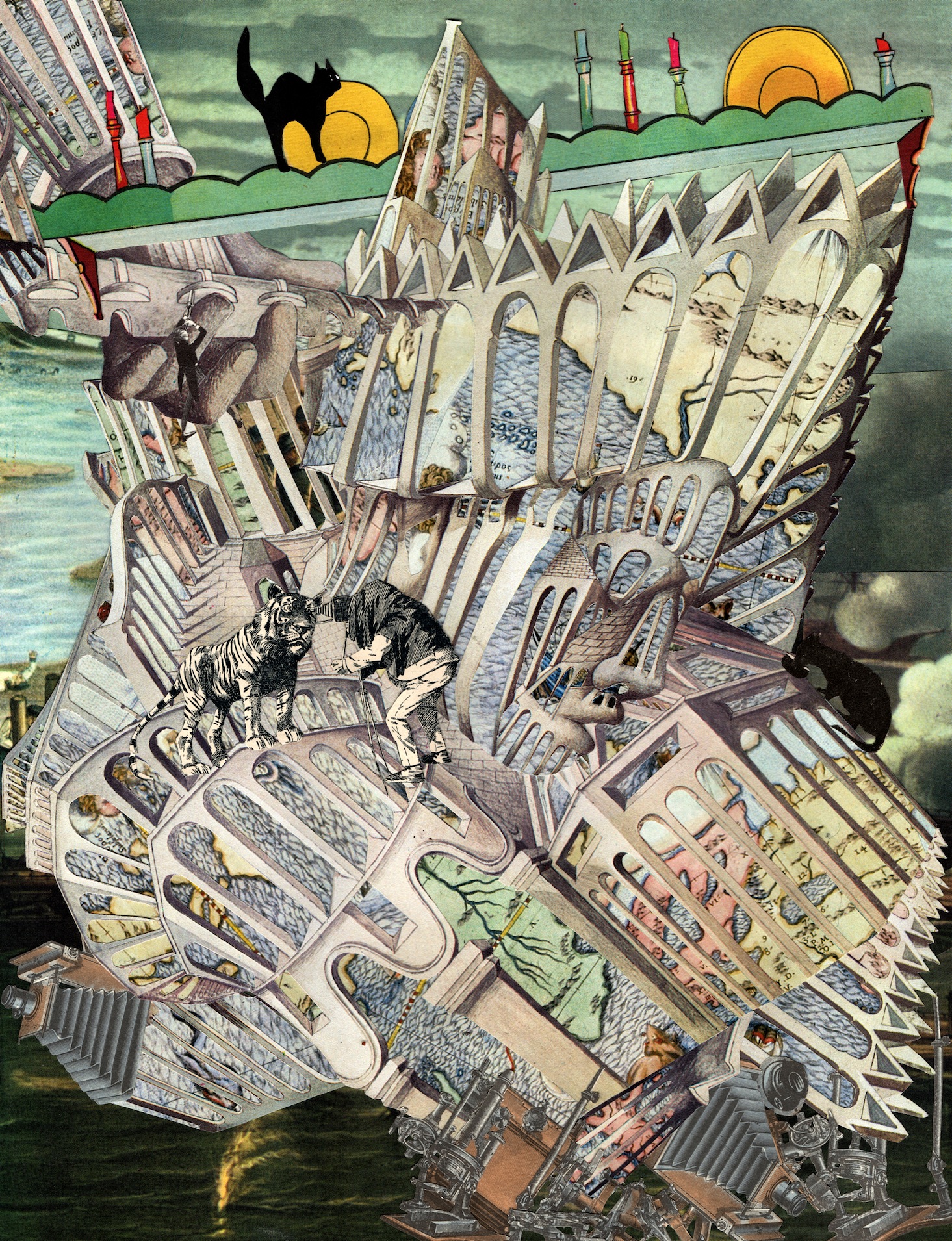There is only the room. It’s the kind of room she likes. There’s a sofa, a cat, a little table and two armchairs. Everything’s perfectly clean. The wallpaper’s fresh and new; the light from a little lamp smooths across the pristine wall paper. There’s even tea. And there’s a biscuit. On the table, set by the sofa, there’s the little cup, and in it is the tea, pale and weak, just as she likes. The cat is curled on the sofa beside her, asleep. She strokes it. At the heel of one armchair there’s just a small rough patch where the cat has been sharpening its claws, ready to scratch, ready to hunt and fight. But it can’t, the cat, because there is only the room.
But there is a door. There must be a door. She sits on the sofa, comfortable, knowing there’s a door. The sofa’s made of the same material as the armchairs. She’d thought of everything. Everything she’d thought of is in the room. She’d thought of the cat.
But the cat hasn’t a name. It bothers her now, and now she can’t think of any names, not even her own.
She looks at the tea. It’s still and doesn’t move. Nothing happens to the tea in the cup, or to the cup on the table, or to the table or to the room.
And then, sometimes, she isn’t on the sofa; sometimes she’s standing in the middle of the room. Except she shouldn’t know, now that she’s sitting, about the times when she’s standing, shouldn’t have remembered them, those other times. She shouldn’t know about time and about time in the room.
And sometimes the cat is awake too. Then the cat will curl from the sofa, stretch, and go to the armchair to sharpen its claws. It’ll look at her, the cat, as it picks at the armchair with first one foot, and then the other, its claws making a sound like a radio without stations.
She hadn’t wanted any sounds. She’d wanted the cat asleep. But when the cat looks at her, it’s as if she isn’t herself, as if she is the cat, sharpening her claws on that patch at the heel of the armchair, sharpening her nails, ready to scratch, to hunt and fight. And then, at times like this, when she just sits, and the cat is asleep, she can’t help staring at that patch, and thinking it isn’t perfect, that patch, it’s far from perfect. Perhaps it’s because of the biscuit.
Because it isn’t quite right, the biscuit. Perhaps that’s why she stands sometimes, in the middle of the room, looking at the cat. Looking at the cat as if she is falling from a height toward it. As if she has, somehow, been screaming.
She sits on the armchair now, looks at the biscuit. Unlike the tea, the room, the sofa and the cat, the biscuit’s changing. It’s horrible how it changes, the biscuit. It looks soft, a little old.
Perhaps it’s always looked soft. But, although she doesn’t think she’d wanted memory in the room, now she looks at the biscuit and it looks different, a look of decay and age. And at this precise moment, she wants it. She wants the biscuit.
She leans forward, reaches for it and lifts it from the table. It’s light. She cups her other hand under it, in case of crumbs. She wants the crumbs too, wants the whole biscuit to be dirty in her mouth. Her mouth opens. Her mouth opens for the biscuit which is on her tongue now, on her tongue over and over, falling and falling to pieces in her mouth again and again in this room which never changes. Never changes. Never changes.

